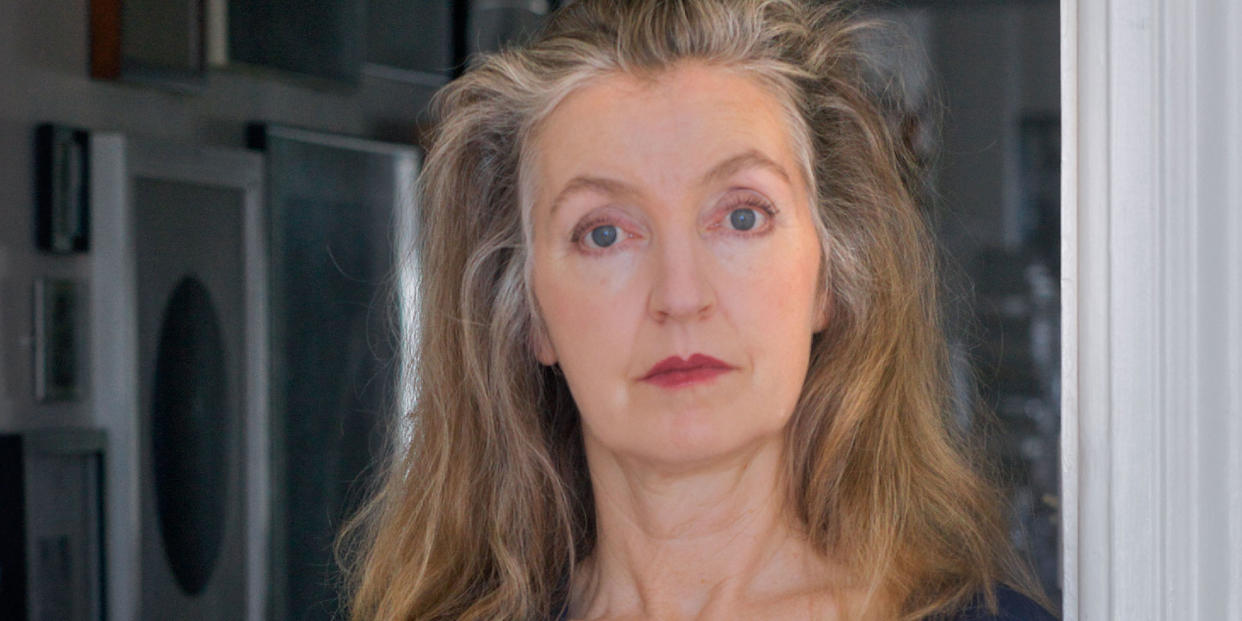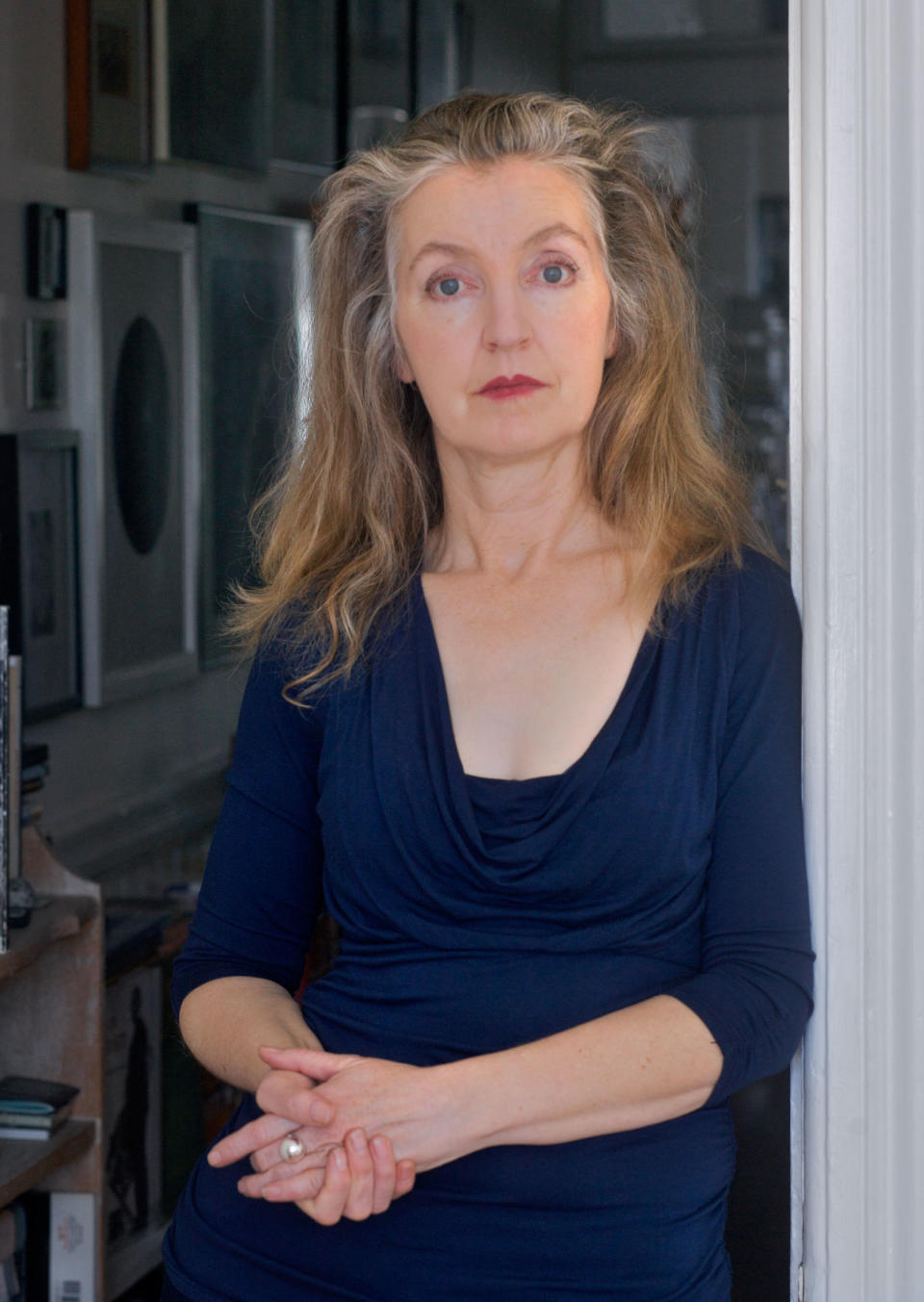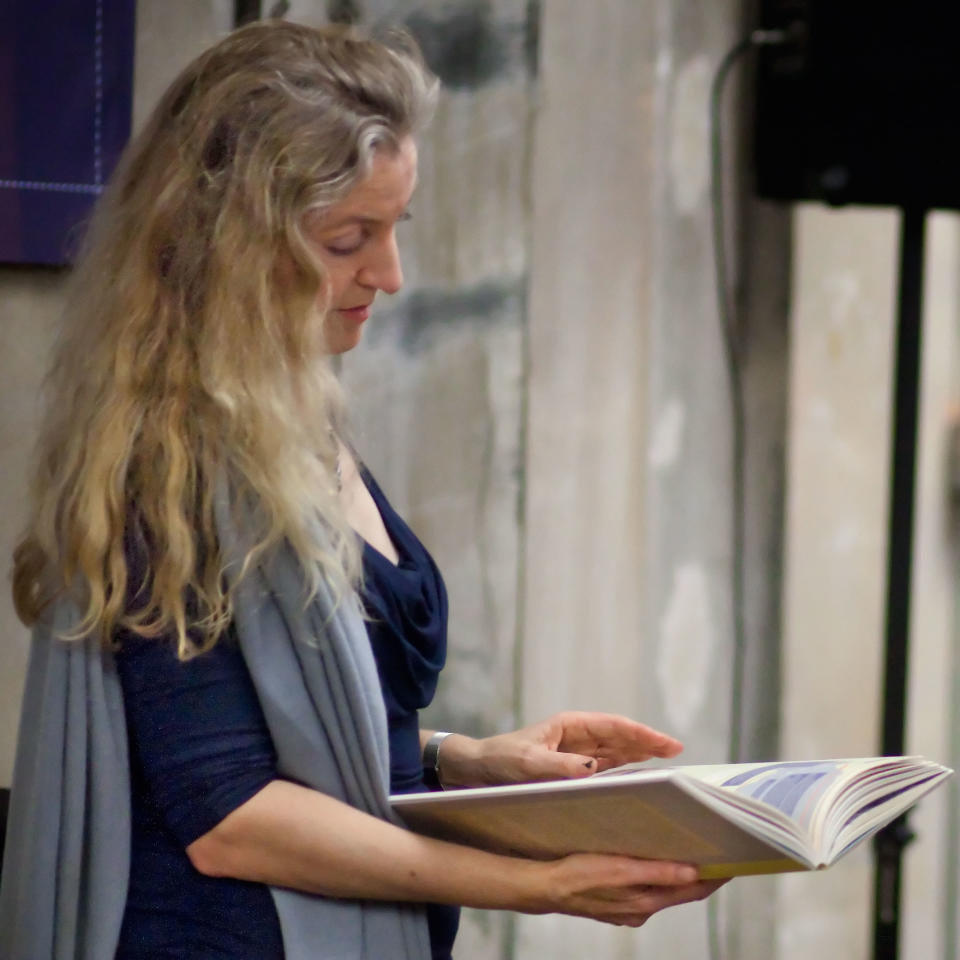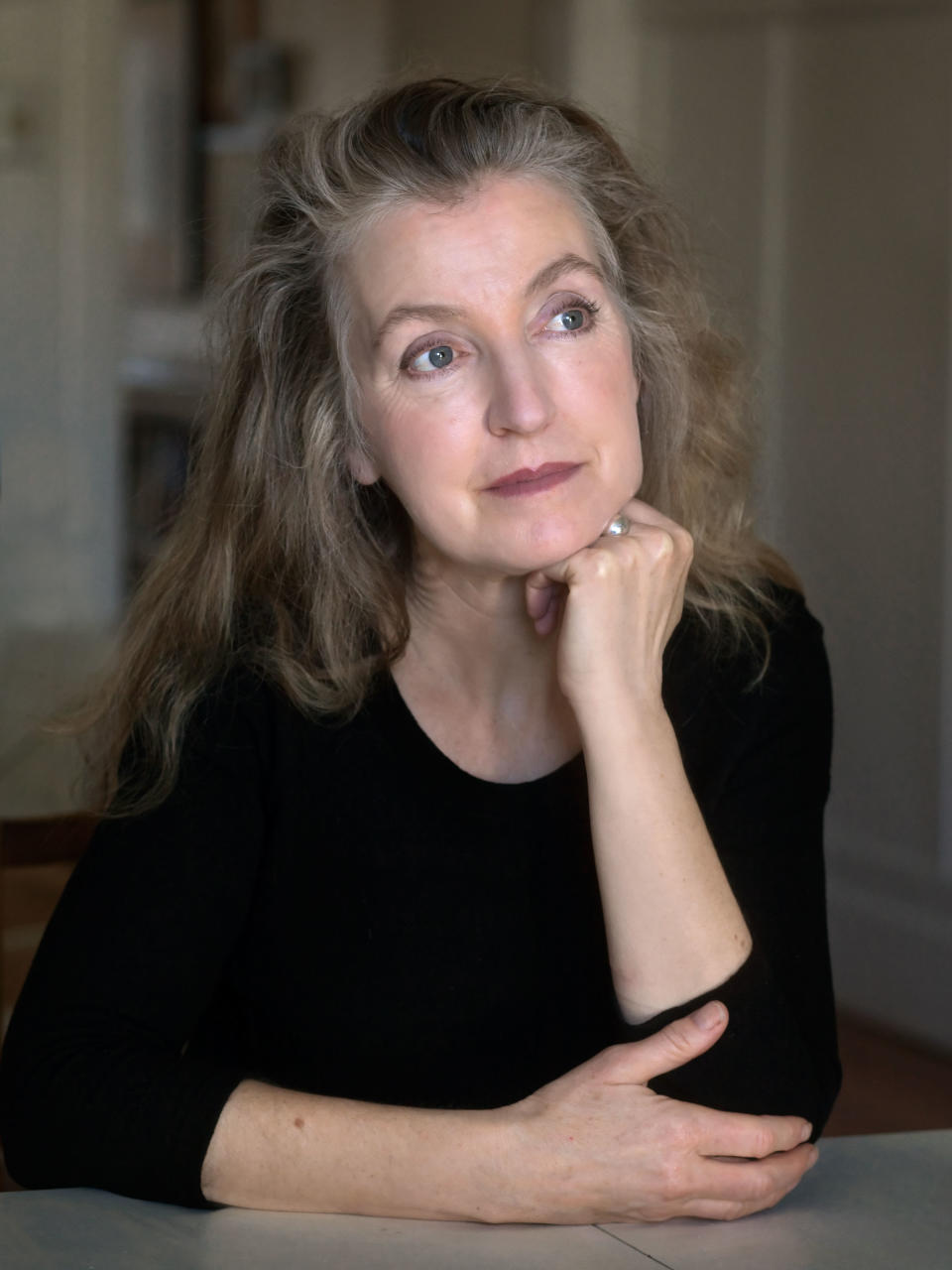How I Became a Writer, Historian, and Activist


Rebecca Solnit decided in first grade that she was going to be a writer because she loved to read. She later realized a love of reading didn’t necessarily make you a writer, so she learned to write. Solnit, now 55, is the author of 20 books, the latest of which, The Mother of All Questions, came out in March.
She is the recipient of a National Book Critics Circle Award and the Lannan Literary Award, among other prizes, and she has fans as famous as Beyoncé and Michelle Williams. Oh, and you can give her credit for inspiring the term "mansplaining" too. Solnit talks about the adventures she's had in her life as a writer.
When I was growing up in the Bay Area in the 1970s, I was a scrawny, unpopular, nerdy kid. I was not having a particularly good time in school. I went through the 10th grade, passed the GED when I was 15, and started community college when I was 16.
I worked a few days a week at a clothing store to start saving money for my long-term project, which was leaving home. I saw a poster with one of those cards you could send off: Go to school in Paris! I scrounged up enough money to cover my first year, which included borrowing money from one of my brothers because my parents wouldn't cosign a student loan. They didn't participate much in my life from that point onward, financially or otherwise.
I was in Paris for three semesters. I won a scholarship to go back but I'd run out of savings. I finished up at San Francisco State University. I was an English major, which taught me to read critically and at least to write your basic paper. I realized that I knew how to read but I still didn't know how to write.
When I was 21, I went to the graduate school of journalism at U.C. Berkeley. I was hoping to learn how to write for this deep vocation I had. I got practical skills that made me somewhat employable, but there was also a real emphasis on ethics and the responsibility you have - to who you write about, to the public, and to the historical record - that I've always been grateful for.
I take pleasure in trying to make good sentences no matter what I'm doing.
I got hired at a little art magazine [Artweek] before I graduated in 1984. I worked there for about 3 1/2 years. At the magazine, we got manuscripts on Mondays. We would clean them up and send them to press by the end of the week. I did that over and over and over. By cleaning up writing, you learn what makes a good sentence. I did reviews. I tried to make it beautiful, thinking of it as something that should be shapely. I take pleasure in trying to make good sentences no matter what I'm doing.
I left the art magazine for a job that didn't work out. I got on unemployment thinking that I was going to go back to having a full-time job after a hiatus. I wanted to write a book, and I did it.
The book was about visual artists who were part of Beat culture in California in the 1950s. I had done my graduate thesis on one of them. I realized that there was a lot more to the story. I also knew when I was 22 that I didn't yet have capacity to tell the [full] story. But by 1988, at 26, I felt I'd learned a lot. I felt ready to write the book.

I wrote a query letter. I put clips together and tried to substantiate what I could do. I sent it to [publisher] City Lights. They gave me a contract with an incredibly tiny advance. It was terrifying, but I was able to convince myself that since I could write a 5,000-word essay, I could regard a book as 17 5,000-word essays.
How, when you're self-employed, do you make sure you're not goofing off? I didn't want to be a slacker. One of the things that makes it hard for writers is that we're a culture that models productivity on factory assembly lines. I thought writing was typing and you should be at your computer going, peck, peck, peck, peck, peck, peck! It always cracks me up when writers in movies smite their brow and suddenly go into a typing frenzy. I had one of those frenzies. I realized that it wasn't going anywhere and had to pause. What is writing? Writing is primarily about gathering your materials, it's about thinking what it means and how to organize it, which looks a lot like nothing. Writing is what you do when you've thought. That [realization] was huge. That stayed with me. I'm not here to type, I'm here to write.
Writing is what you do when you've thought. I'm not here to type. I'm here to write.
I got by on my advance because I was manically productive. I actually wrote almost 50 other things for publication that year. A lot of them were short, simple things - go look at an exhibition and write 800 words about it. Here and there, I taught a class. But the majority of my income since 1988 has been from writing. I always meant to get a job and assumed I would need to. St. Augustine famously said in his confessions, "Oh God, give me chastity, but not yet." I've been joking, "Oh God, give me employment, but not yet."
Living below my means has been essential to being independent and doing what I want to do rather than serving my credit card debt. I didn't have a lot of school debt. I also had this rent-controlled apartment that was a really pretty little place that was small, but was mine and I could write in. In ways, I feel lucky. You can't work the way I did and pay rent on a studio apartment in San Francisco now.
The first book [Secret Exhibition: Six California Artists] came out in 1991. It actually had some influence but it did not exactly make my reputation. A number of people liked it, but it took a very long time to sell out the only 5,000 copies, and it has not been reprinted. It's my only book that's out of print.
I became an anti-nuclear activist. I went to the Nevada Test Site. The way Native Americans had been made to disappear hadn't really been told. I was really on fire with what seemed to me like really important stories. I wrote a book proposal and an editor from Sierra Club Books agreed to do it.
The Nevada Test Site taught me to write because it was there that I realized there was no reason the very lyrical, tight personal essays that I'd been writing, the journalism, and art criticism - which felt like three different things - had to be separate. I needed to use all of them as techniques to describe a place that was so complex and loaded and layered. It was a magic era.
Deep research has always been important to me. For Savage Dreams, I needed to recap the history of the making of the atom bomb. How was I going to write about this without just giving the encyclopedia summary? I was reading biographies of the physicists. Reading those histories, I realized that every important breakthrough took place while one or two of the physicists were walking, and that I could turn it into the narrative of a walk and another walk and another walk and another walk. That's the reward of research.
Lots of people want to be me now, but nobody wants to be me 20 years ago.
I bought a pickup truck with the advance, which was about 10 times the size of what I got from the first one. It was $12,000, which was real money to me in those days. I bought a pickup truck for $1,800 and commenced having great adventures that I had all through the '90s. It was a fun self-image: pickup truck, cowgirl, American West.
I did a book about travel and Ireland [A Book of Migrations] that was really useful for me and transitional, but I don't think is one of my great ones and hasn't had great attention. But then I did Wanderlust, which is my first book that was a popular success. When I finished Savage Dreams, a wonderful young editor said, "You should write a book about walking." I was trying to take on a subject that hadn't been written about in quite that way before. That brought me to the editor I still work with and adore, Paul Slovak. It brought me to a major publisher and my first major advance.
At some point, I realized, Oh, I'm probably never going to office temp again. Lots of people want to be me now, but nobody wants to be me 20 years ago when I was living on $15,000 a year.
Every book answers one set of questions and raises another. After Wanderlust, I had questions about wandering, which became a kind of writing I had never done before: A Field Guide to Getting Lost. After writing books that were connected by objective historical thrusts, it was about letting a poetic subjectivity tie things together and relate them. I wrote it without knowing whether I would want to publish it, and if I did, if anyone would want to publish it, and if they did publish it, if anyone would read it. Until recently, it felt like [my] most successful, beloved book. A lot of people responded to it really deeply.

I hadn't started my first atlas [Infinite City: A San Francisco Atlas], though I had agreed to it, when I wrote "Men Explain Things to Me" before breakfast one morning [in 2008] at the behest of Marina Sitrin, my house guest that week. I had no idea that it would be still circulating, still cited, successful in Korean and Swedish. I wasn't like, I'm going to take over the world! I read somewhere that "mansplaining" is now a word in 34 languages.
You discover things by writing. I began with something that was very funny and harmless but obnoxious: a man explaining to me about a book that I actually wrote. I ended up writing about rape and murder and women's lack of credibility in life-threatening conditions. If I've done anything useful for feminism, part of it has been insisting that we not talk about domestic violence and workplace harassment and street harassment and rape as separate phenomena, but all as transgressions against rights and our dignity and autonomy, including the right to self-determination and the right to a voice.
I've never not written about feminism. I wrote about it for a punk magazine in the mid-'80s. Savage Dreams has a lot of powerful women in it, very consciously. Wanderlust has a chapter about walking and gender and women's lack of freedom of movement. A lot of times, the new stuff is the seeds that were planted long ago and now I'm harvesting the fruit.
My life has been startling to me. Nobody had ambition on my behalf when I was young.
This thing that's supposed to be success feels a lot like failure. I have to say no a lot. There's a certain amount of chaos because I drop balls and lose track of things and fail to reply in a timely manner. I miss a quality of depth I had when I was less so-called successful. I was really free to do what I thought the most important thing was. I'm trying with limited success to regain some of that freedom. For somebody who's led a pretty quiet life, it's sort of overwhelming. I should also say I don't feel sorry for myself. I learned a phrase from a black woman decades ago: Cadillac problems. These are Cadillac problems.
My life has been startling to me. Nobody had ambition on my behalf when I was young. Nobody led me to have high expectations of myself or even to think about some of the things that have happened, about being something of a public figure, playing a role in some of the conversations in the culture, making a living by writing. I just wanted to do this thing, which was about describing the world as I saw it, about the art of telling stories, working with language, finding relationships and patterns in the world, intervening on behalf of the things I'm committed to - and here I am.
Get That Life is a weekly series that reveals how successful, talented, creative women got to where they are now. Check back each Monday for the latest interview.
Follow Helin on Instagram.
You Might Also Like

